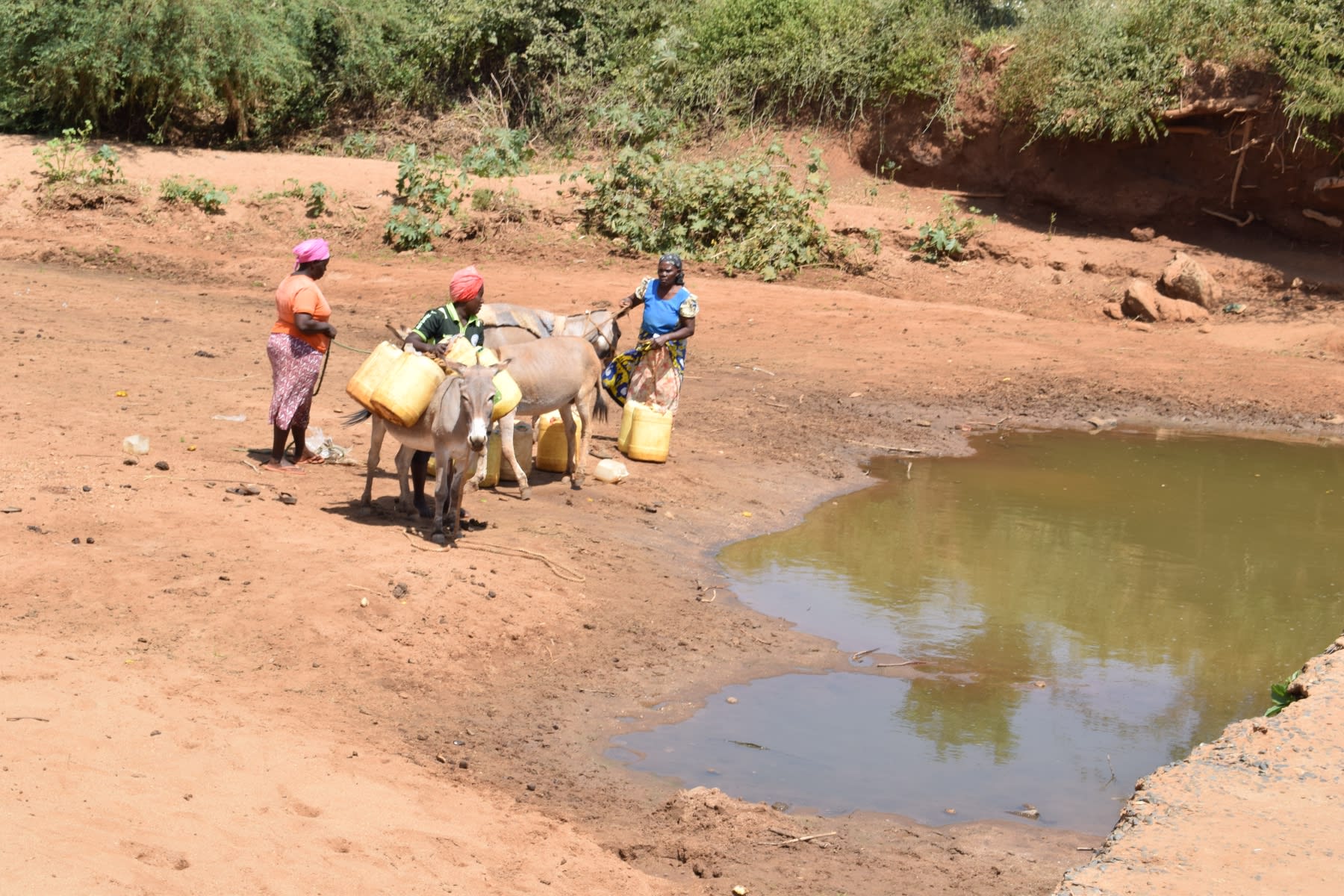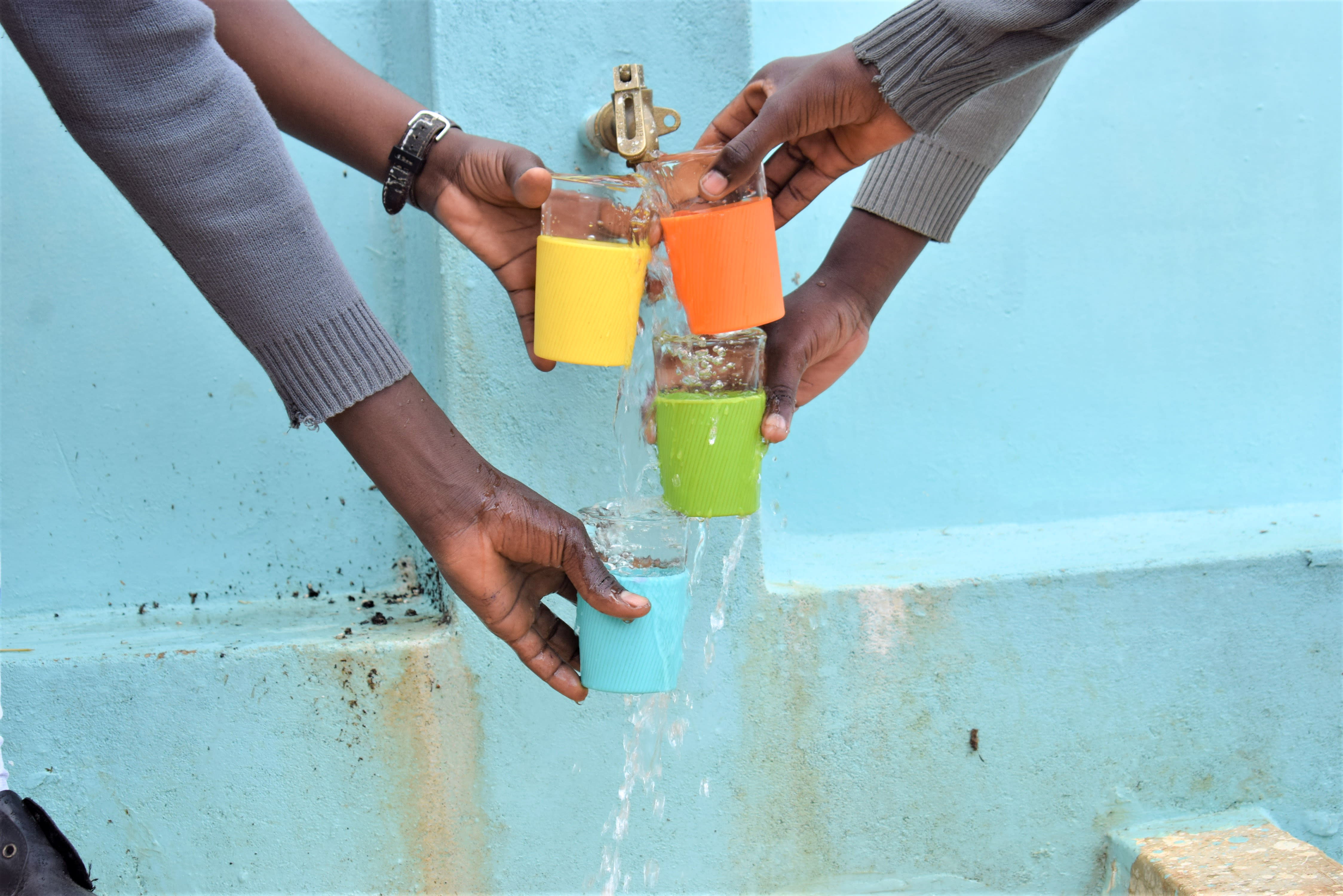The school administration at AIC Mbau Secondary School has done what they can to alleviate the water crisis for their students; they gathered the money to purchase a plastic water tank. After it fills with rainwater, it provides an alternative to river water for a short time.
The plastic water tank is of low capacity and can only sustain the school water needs for two weeks when filled with water. Scoop holes are dug in the seasonal Tyaa River. The water point is shared by the community members and livestock who often pass through the river in search of drinking water after grazing in the field. Many people access the water point using donkeys in order to ferry many containers at once.
The school was started by local community members in 2012 who teamed up to start a secondary school within their village. It is found in a peaceful rural area with a rough terrain comprising of steep slopes, the area is partly dry with scattered trees. Being a young school, most of its buildings are new and decent, however, other buildings are still under construction.
Needy parents are required to supply water to the school as a way of paying fees for their children. They walk long distances with donkeys and endure long lines to fetch the water before bringing it back to the school.

All this effort is done to collect unsafe water from a source that runs dry when the rains stop. This exposes the school community to dire water challenges leading to them seeking alternative sources that are even farther away.
"Our area of operation is among the driest regions in this country, lack of clean water supply has reached a point where water from scoop holes has been culturally accepted as clean and safe for human consumption," Principal Charles Mwendwa said.
But that isn't the case. The water is open and unsafe. Students are at increased risk of contracting waterborne diseases by drinking the water from the scoop holes.
Here’s what we’re going to do about it:
Training
Students and staff will be trained for one day. Those in attendance will form a school health club that will promote good hygiene and sanitation practices both at school and at home. They will learn all of the steps to proper handwashing, how to treat water, and how to keep their environment clean. The school will also be taught how to best oversee and maintain their new rainwater catchment tank and handwashing stations.
Handwashing Stations
Three handwashing stations will be delivered at the project’s completion. These are 1,000-liter plastic tanks fitted with four taps. The health club and school management will be responsible for making sure tanks are filled with water and that a cleaning agent such as soap or ash is available.
Rainwater Catchment Tank
We will build a 104,000-liter rainwater catchment tank for this school. This water will benefit the students, teachers, and supplementary staff. Parents will mobilize the materials needed for construction, such as sand and stone. They will also lend some strong arms to help with the actual construction.
The huge capacity of this tank makes the others look tiny in comparison; 104,000 liters should be enough water to carry students and staff through the entire dry season. As soon as the tank has time to cure, it can begin to collect rainwater for drinking, cooking, and cleaning!



 Rehabilitation Project
Rehabilitation Project

































